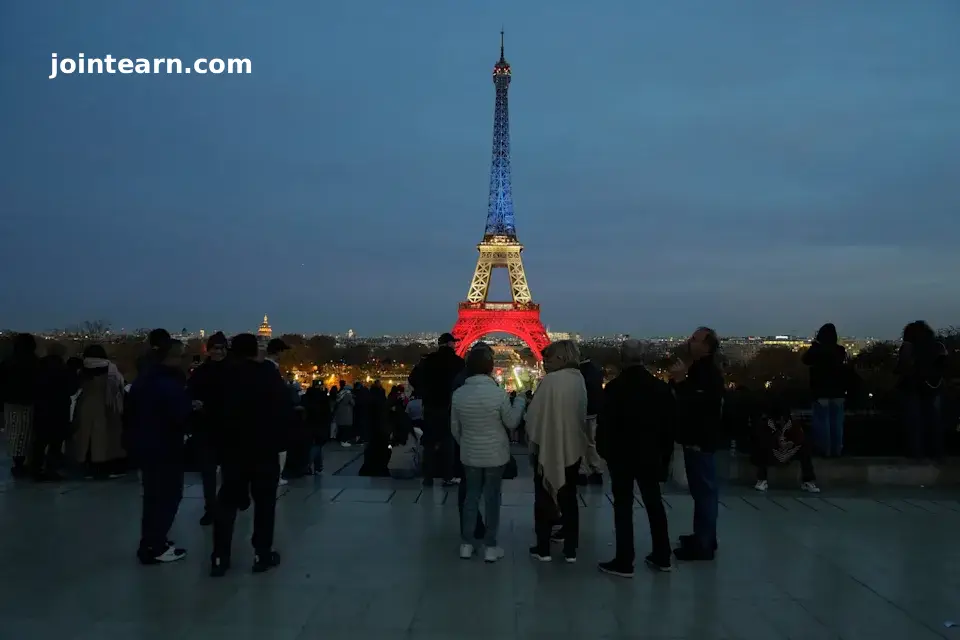
Paris, France – November 13, 2025 – France marked a solemn decade since the deadliest peacetime terror attacks in Paris, honoring the victims of coordinated assaults at the Bataclan concert hall, Stade de France, and local cafés with ceremonies, moments of silence, and new memorials across the city.
On the evening of November 13, 2015, nine gunmen and suicide bombers affiliated with the Islamic State (IS) carried out attacks that killed 132 people and injured hundreds more, leaving an indelible mark on Paris and reshaping France’s security policies. Survivors, families, and government officials gathered in the capital to remember the lives lost and reflect on the decade-long impact of the attacks.
Memorial Events and Ceremonies
President Emmanuel Macron and First Lady Brigitte Macron participated in a wreath-laying ceremony at the Stade de France, the site of the first bombings. Paris Mayor Anne Hidalgo also attended, emphasizing the enduring emotional toll on survivors and families.
Sophie Dias, whose father Manuel was the first victim killed that night outside the stadium, described living with “a void that never closes”, reflecting the long-lasting trauma experienced by the families of victims.
Commemorative events extended to cafés and concert venues across Paris, including Carillon, Petit Cambodge, La Bonne Bière, Le Comptoir Voltaire, La Belle Équipe, and the Bataclan. Families of victims were given priority seating at each site in a “families first” protocol designed to honor those most affected.
The November 13 Memory Garden
A new memorial garden, the November 13 Memory Garden, was inaugurated opposite City Hall. Designed with input from victims’ associations, the garden features granite blocks engraved with victims’ names, symbolizing the attack sites and offering a contemplative space for remembrance. The garden will host a musical tribute to honor the spirit of life and festivity that the attackers sought to destroy.
The Eiffel Tower was illuminated in blue, white, and red, and church bells across Paris, including Notre-Dame Cathedral, rang in memory of the victims, reinforcing the city’s collective mourning and resilience.
Impact on Security and Society
The attacks prompted sweeping counterterrorism reforms in France and sparked ongoing debates about security, civil liberties, and the threat of radicalization. Interior Minister Laurent Nuñez noted that the terrorist threat remains “very high”, with authorities now focused on individuals radicalizing within France rather than coordinated mass attacks.
Survivors describe a continuous struggle to rebuild daily life. Arthur Dénouveaux, a Bataclan survivor and president of the Life for Paris association, said, “You never fully heal. You just learn to live differently.” Survivors and officials alike stress the importance of preserving ordinary joys—music, sports, social gatherings—as a tribute to resilience and defiance against terror.
Justice and Accountability
A 2021–2022 trial resulted in life imprisonment without parole for Salah Abdeslam, the lone surviving assailant, and convictions for 19 others involved. While legal accountability has been achieved, the emotional scars persist for those who lived through the attacks.
Officials and families emphasized a unified message: remember the victims, honor the first responders, and protect the everyday life the attackers tried to destroy.
As France observes this somber anniversary, the city demonstrates a balance of grief and resilience, ensuring that memory preserves room for the living.


Leave a Reply